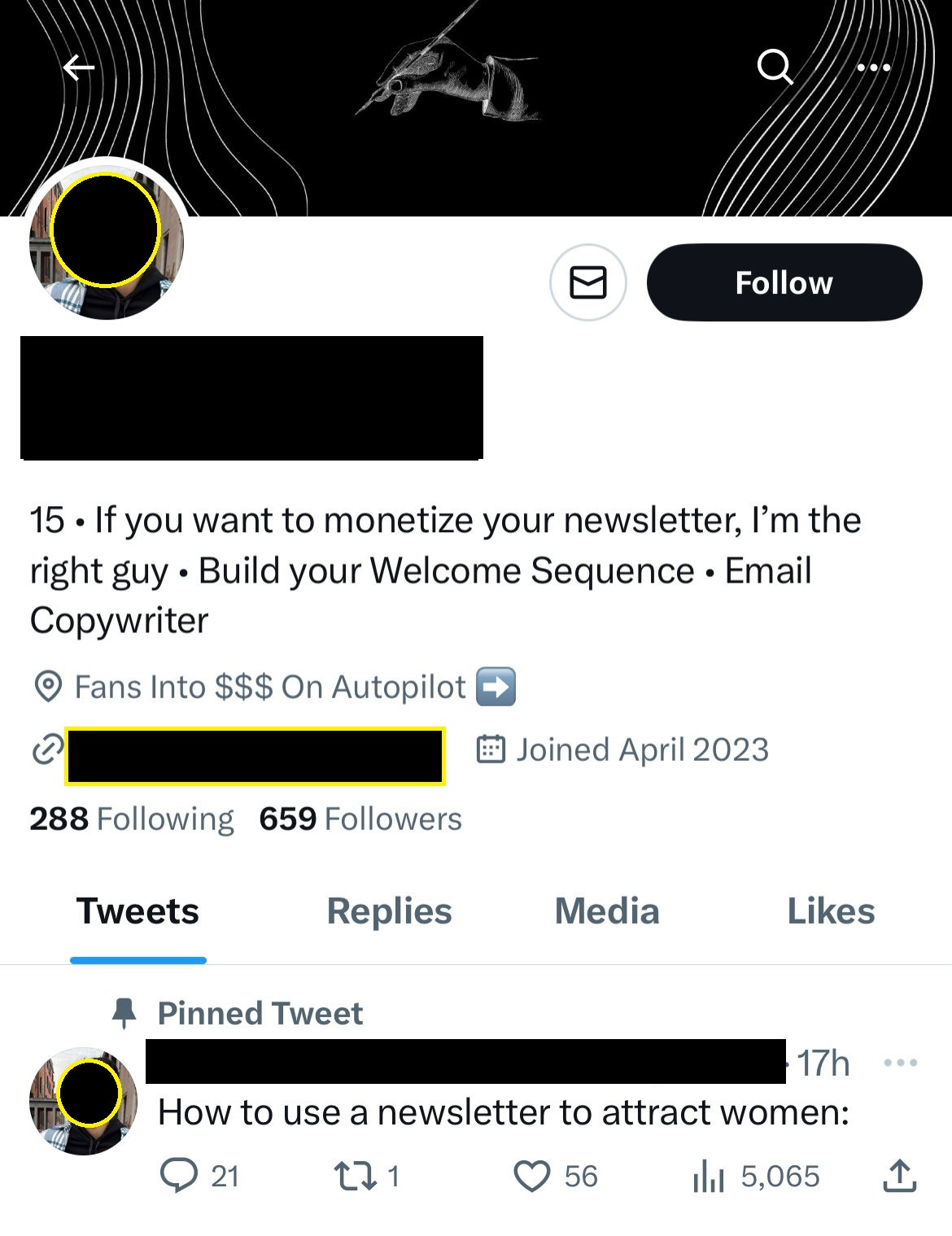The complexities of discussing career advice
I’ll admit it: I am new to Twitter.
I had opened an account years ago but left it completely abandoned.
I had named myself Whispers of a Management Consultant. Similar concept to what I’m trying to do now - just I didn’t follow through (story of my life!).
Now, I am back on Twitter and, so far, I’m loving wandering around and reading all sorts of stuff on just about any subject. It’s fascinating.
Hello 👋 one quick ask before you keep reading.
If you are new to this newsletter, please subscribe: it’s free… and interesting ✔
If you are already subscribed, please share it: don’t be selfish! 🤗
In my recent explorations of the Twittersphere, I've come across an intriguing trend: hordes of callow advice-givers whose intelligence often surpasses their depth of experience in the real world.
I literally mean 15-year olds giving life advice. Holy f*ck!
Please bear no offense: in the long run, success lies in the nuances, where subtle distinctions can make or break your journey. When you’re 15, you haven’t seen enough to be able to discuss credible opinions on careers or life (and almost anything else, for that matter).
Alongside the kid coach figures, I have read platitudes that seem glaringly obvious, leaving me to question if such truths really elude people's awareness. How could you not think about that before?
Then, there are those who assert their opinions as irrefutable truths, when in reality, these thoughts reside within shades of gray. I do it as well, because - I am told - that is the way to stand out on Twitter! Controversy is the name of the game.
Just the other day, a conversation I put myself in revolved around the idea of saying “no” more often—a paradoxical piece of advice that warrants closer examination.
I wrote here about the importance of saying “yes” more often in Management Consulting, but actually I should give more context.
Things change according to the career phase you are in.
The Early Career phase - embracing opportunistic “Yes”
In the early stages of your career, it’s crucial to seize every opportunity that comes your way.
This is the time to eagerly seek exposure, keep learning, and develop new skills. Building relationships with mentors who see your potential is incredibly valuable. Luckily, this period is filled with energy and determination, qualities that may diminish over time. Let me tell you: after 20 years in your career, you possibly will not have the same motivation of when you just started.
By saying “yes” to every opportunity early on, you ignite your growth and dramatically increase the probability to move ahead on your professional path quickly.
The Established Professional: the discerning art of “No”
Once you have become skilled and respected in your workplace (you built equity within your organization), your mindset undergoes a change.
Let me be specific: you don’t completely start shutting down all opportunities. Instead, you start considering how these opportunities can be advantageous to you, based on your personal circumstances. When faced with routine tasks that you have completed many times before, it’s wise to take a moment and evaluate if they align with your long-term goals.
With polite yet assertive communication, you can express your intentions to your boss. Depending on your marketability, your risk appetite, your financial and personal situation (and many other factors), you may take the chance of telling your boss to f*ck off (in a nice way 😁) if you don’t want to take on some tasks.
Conclusion: there’s no conclusion
I know, it’s disappointing but there’s no one right answer here, just my two cents.
It’s still quite important to remember that - if career advancement is a priority - it's strategically smarter to say “yes” more often than “no”. You just need to ensure you are comfortable delivering on your promises, and you’ll be much closer to attaining the rewards you’re after.
Specific career advice, or I should say opinion, is rarely appropriate for everyone: it’s bespoke thinking, not mass-produced stuff.
There is no universally applicable formula.
It's all about nuances, and what will give you a precious perspective is reflected experience, the one that you can only get after making a ton of mistakes and reflecting introspectively upon each one of them.





